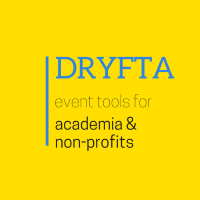
Someone recently asked me how she should go about organizing an event. So I jotted down a quick list of things which I do to plan my own events and making sure my attendees go home happy, and I also get to have a decent ROI.
Here’re the most common things that I do every time I have to organize an event:
☑ Topics
— Brainstorm on topics, themes for the event and the attendees’ segment I like to bring to the event.
☑ Speakers
— Think of all the speakers I would like to get on board.
☑ Venue
— Make a quick shortlist of venues and cities where to host the event.
☑ Budget
— Set a budget. And profit expectations, if any.
☑ Sponsors
— Make a list of sponsorship prospects for the said event.
☑ Tickets
— Pricing the tickets.
☑ Pre-event campaign
— Once all that’s done, I will run a pre-event campaign among small group of prospective attendees asking them if they would want to join in for such an event with such and such topics.
☑ Pitch to speakers
— If majority of the prospects nod yes and reaches a common ground on a theme/topic, I would go ahead and start pitching to speakers. You can also get some help from sites like speakersmatch.com etc.
☑ Event website & Call for papers
— I will then set up an event website to call for papers using abstract management platforms like Dryfta to let speakers submit their papers for review. I and my team will review the papers and accept and reject accordingly.
While the team reviews the papers from speakers, I will focus on selecting an appropriate venue while making sure it doesnt go over my budget.
☑ Food
— Prepare food list. A mix of local and exotic food works wonder. Get talking to vendors and caterers. To search vendors, use one of the many directories/sites listing these services. Ask them to submit quotes.
☑ Accommodation
— If all my attendees are from nearby areas, I wouldnt have to bother about accommodation. But if it’s a large conference, I need to secure some hotel bookings as well, in advance.
☑ Sponsors pitching
— Start marketing my event to the sponsors. I would try marketing my event real hard so I can secure as much sponsorship funds as I can. Will also try get some help from sites like sponsorsearch.com
Once the speakers’ papers are reviewed, those accepted will be notified using the platform and we’ll make a final agreement with the selected speakers.
☑ Ticket sales
— Launch ticket sales, also listing speakers, event agenda and other details. Send email invites to targeted prospects.
☑ Self-service event website
— I will use an event platform like Dryfta which can let attendees manage their tickets, personal program schedule, view other attendees’ profiles, collect leads, and all such self-service tools. Such platforms make it easy for organizers to focus on more important stuff like attendees’ hospitality, and if sessions are progressing as per schedule etc.
☑ Finalize quotes from vendors
— While the ticket sales are underway, I will go back to quotes I have received from vendors and finalize the best ones under my budget, after a thorough reviewing process.
☑ Event app
— Launch the mobile app for the event so attendees can engage well and easy. Since Dryfta event platform already comes with a native app, and I’m already using it to manage my event website, abstract submissions and ticketing, I will use Dryfta mobile app so as to keep all data in sync across all devices.
On the program day, I would not want to tire myself, so as to keep a cool head and help attendees prosper and make the most of their time and money, therefore I will get my team to do all the work using my delegation skills.
Finally, I will use the Dryfta event platform to measure my event success and ROI using the mix of attendees success, sponsor success, marketing success.


